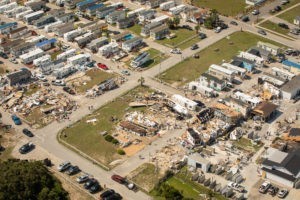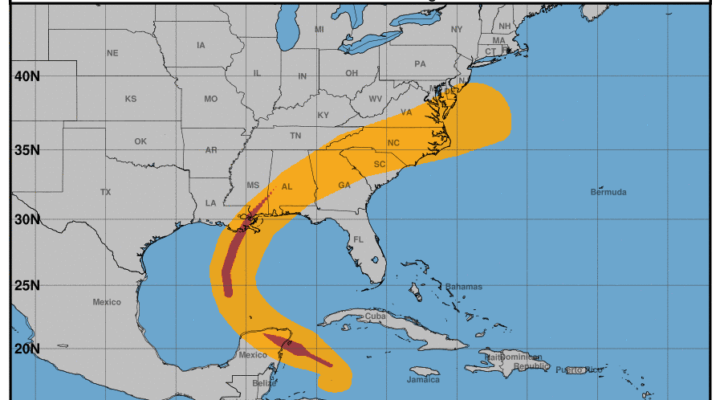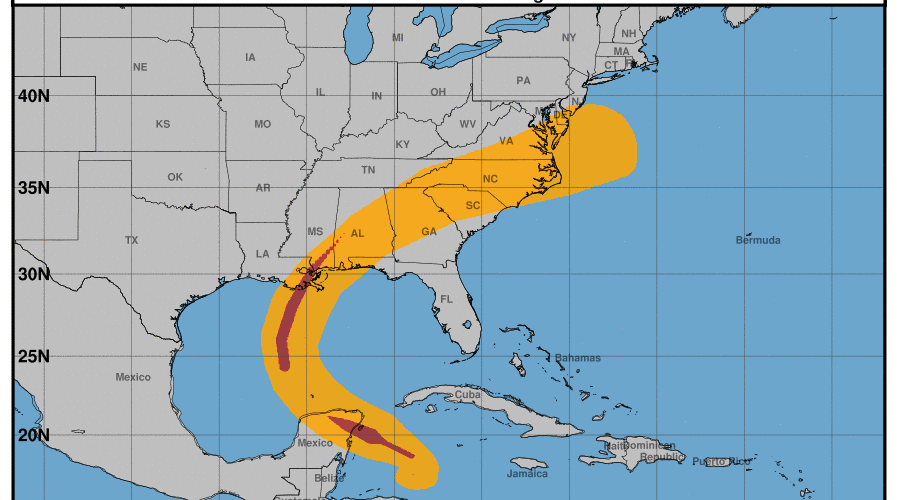The 2020 Atlantic hurricane season is stretching the disaster response capabilities of the Cooperative Baptist Fellowship to the limit.
“I’m afraid we are getting to that point,” said Rick Burnette, Global Missions field personnel and the domestic disaster response manager for CBF.

Rick Burnette (Photo/CBF)
This year’s hurricane season has been a record-setter with 28 tropical storms that produced 12 hurricanes, including four major systems, killing more than 150 people and inflicting at least $30 billion in damage, according to the Center for Disaster Philanthropy. In the U.S., communities from Texas to North Carolina have been ravaged, some of them by multiple storms.
So many storms have emerged that letters from the Greek alphabet are being used to name them — meaning the predetermined set of English-language names allotted for the season have been exhausted: Hurricane Eta nearing landfall in Nicaragua Nov. 2. Hurricane Zeta struck the U.S. Gulf Coast Oct. 28.
The cumulative impact of these and other hurricanes is emotional, psychological and financial, with potential donors, churches and disaster recovery organizations sapped of money and focus with each succeeding disaster, Burnette said. “We just get inoculated to these storms to a certain extent.”
CBF disaster recovery officials and volunteers already had their hands full with post-storm recovery efforts before the current season, including activity in the Bahamas (Hurricane Dorian, 2019), the Florida Panhandle (Michael, 2018) and North Carolina (Florence, 2018). Previous years were exceptionally busy with Hurricanes Maria, Irma and Harvey, Burnette said.
The 2020 season has led to significant responses in the Rio Grande Valley (Hanna) and Lake Charles, La., which was hit by hurricanes Laura and Delta six weeks apart.
“At the same time, giving has been very minimal,” Burnette said. “So, we have to be judicious in what we choose to bite off, knowing our resources and capacity. We are careful, we are deliberate, and we communicate with our partners.”
So many storms, with one (Eta) still active has a numbing effect, he said. Those who have given to previous recovery efforts are challenged to give more. “After a while, people are just exhausted by these things. You just become accustomed to the level of damage.”
That trend is exacerbated by other significant challenges, he added. “If we’re just talking about hurricanes, that by itself would lead to donor fatigue. But then we have the triple whammy of not only years of successive hurricanes, but COVID and an election.”
Similar effects were documented with the Great Recession and general election of 2008 and again in 2012 and 2016, Burnette explained. “Giving was impacted in those years. Election politics have that effect.”
In addition to reducing financial contributions, the pandemic has hit disaster-relief agencies in another key area: volunteerism. The church teams that travel to hard-hit communities are typically comprised of retired seniors — a group that is highly vulnerable to COVID-19.

Hurricane Dorian’s impact on a community in North North Carolina in 2019. (Photo/USCBP/Creative Commons)
The results are telling, he said. “So far this year in Lake Charles, I’ve had a handful of teams inquire but only one official registration.”
Hurricane Zeta, the most recent storm to hit the U.S., left more than 700,000 residents of Louisiana and Mississippi without power after making landfall Oct. 28. As of Nov. 2, CBF disaster response has not been contacted by any of its partners in those states.
“Our procedure is to let needs come up from the grassroots,” he said. “Either affected congregations or partners, like Together for Hope or our close denominational partners, will communicate with our state groups. So far since Zeta, it’s been quiet.”
And that’s OK with Burnette. “We’ve had Halloween already. It’s time for all these storms to go away.”
But given the impact of global warming, who knows how long the 2020 hurricane season will continue to set records.
“It’s the climate crisis,” Burnette said. “This year, we are paying the fiddler on so many levels. It’s kind of scary to connect the dots.”
Contributions to CBF Disaster Response may be made online.


